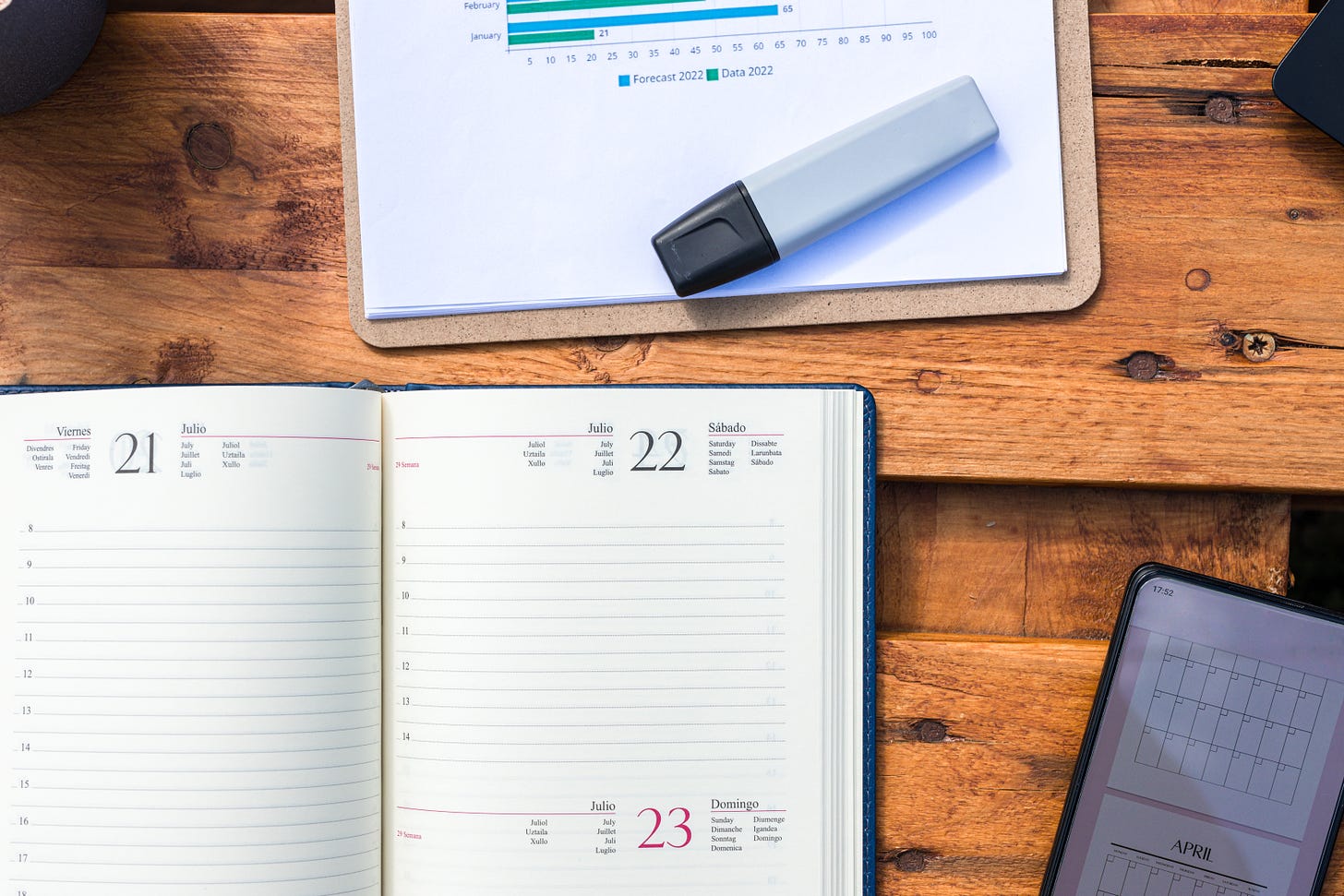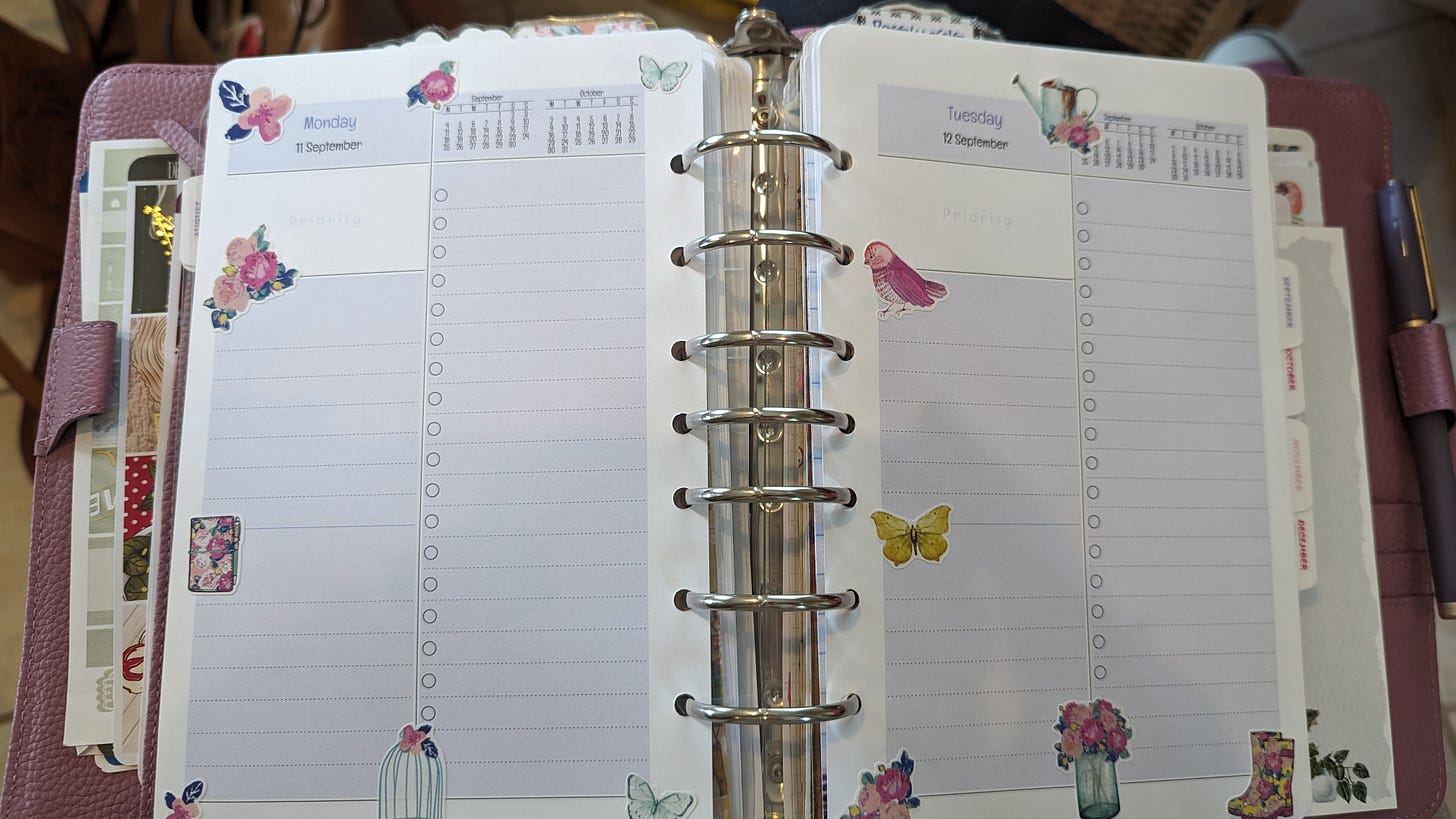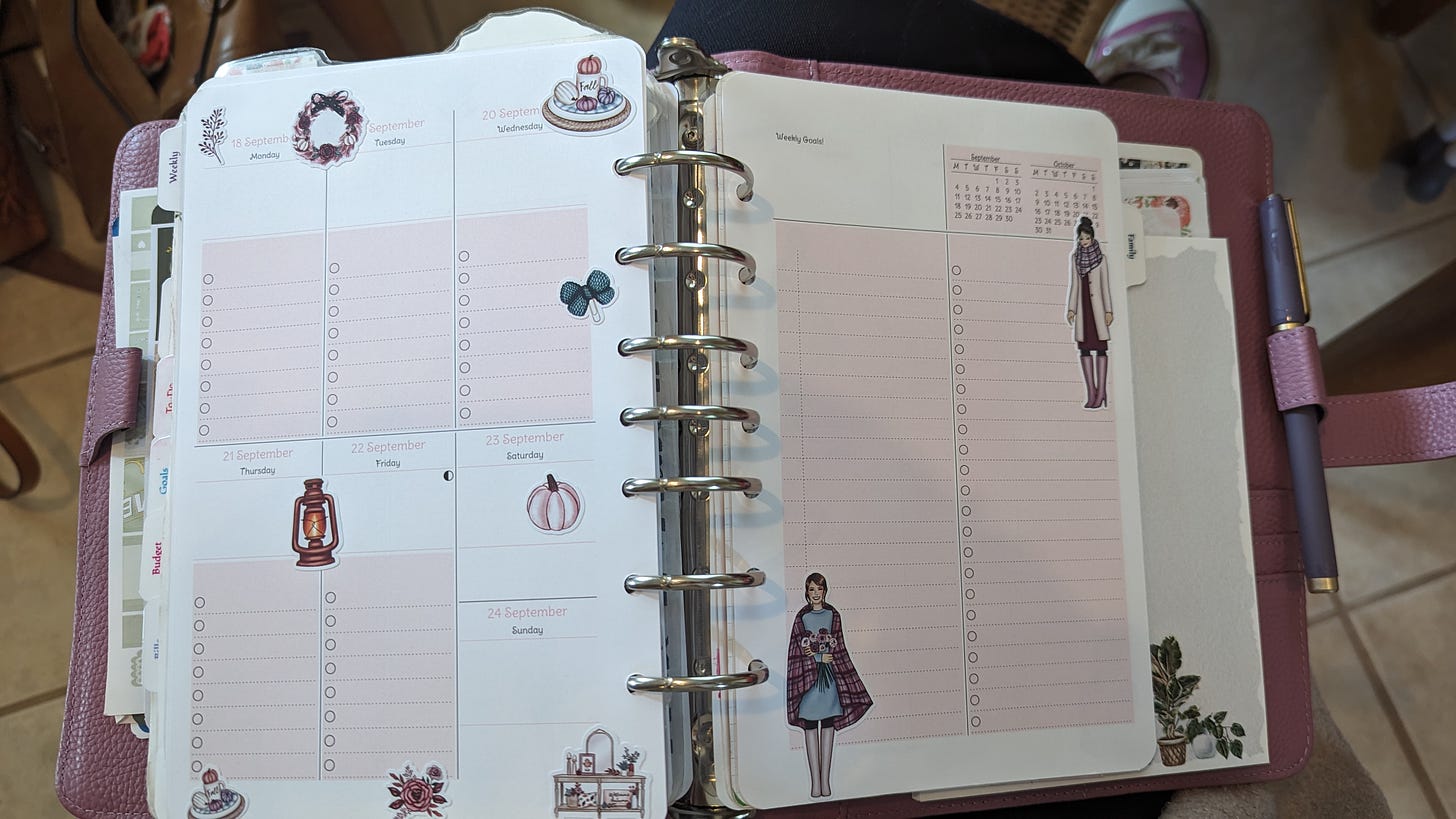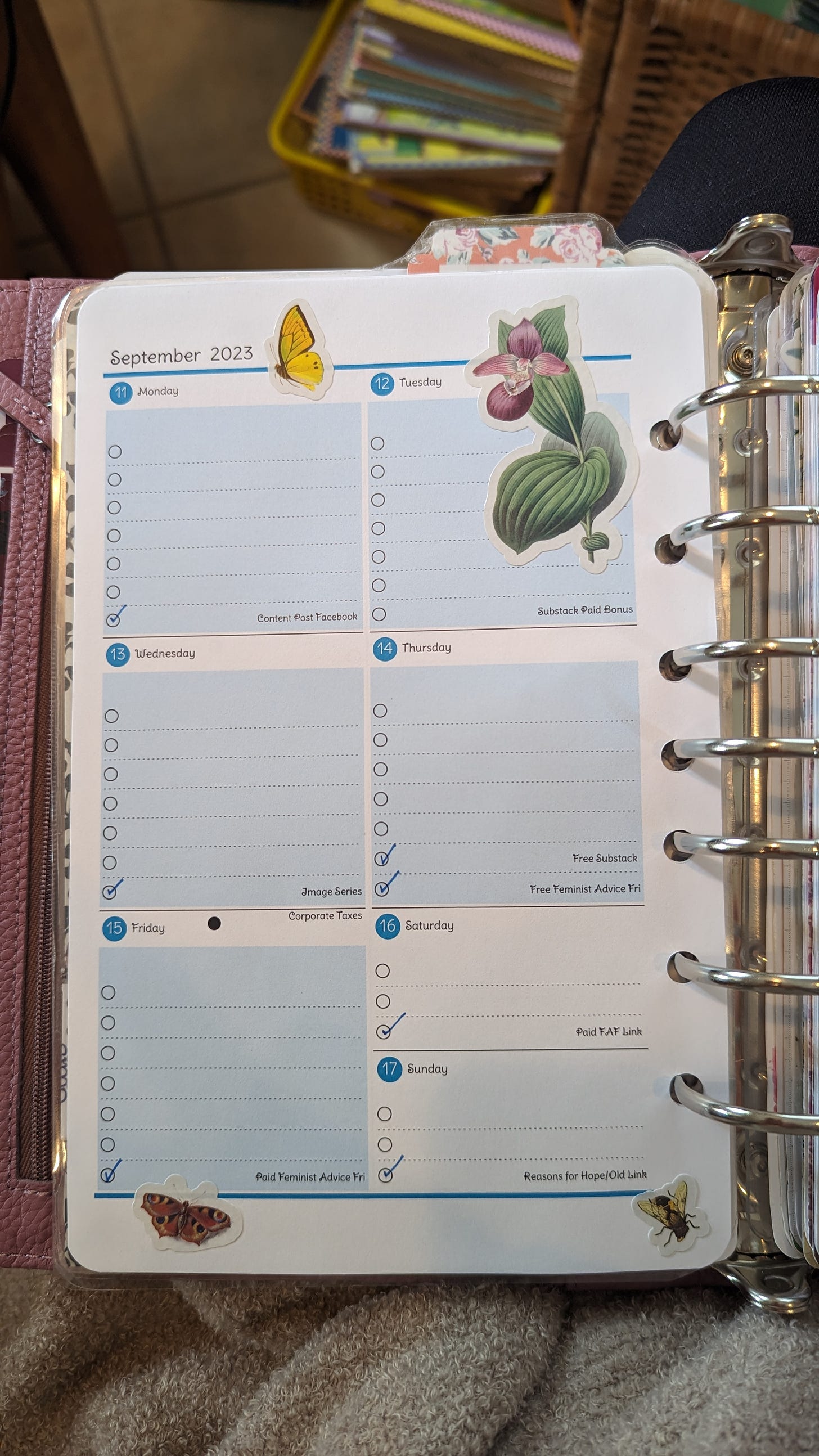I answer your questions about freelance writing and neurodivergent time management
You asked me for follow-ups via email, Substack, and social media. Here are my answers.
In my new Reasons for Hope feature (a mostly apolitical irregularly published column talking about random things I find interesting), I wrote first about making a career as a freelance writer, and then my thoughts on neurodivergent planning and time management.
I didn’t expect that two of the random weird things I’m passionate about would be so interesting to the rest of you, but everyone seemed to love these pieces. Here are my answers to the many follow-up questions you sent me.
Your Questions About Freelance Writing
Where can I find clients?
This is the secret most writers carefully guard. Finding clients is a significant portion of the battle, and most writers would sooner die before giving away a list of their own clients, or of suggested clients.
You can, however, pay for someone else to gather leads for you. Two of my favorite sources are Write Jobs Plus and Opportunities of the Week.
What about finding collaborations/collaborators?
If you’re a social person, collaboration feels good, and it might even feel like you’re doing something valuable.
Writing, though, is an inherently individual pursuit. Sure, you can co-write something with someone else, but that’s going to take more time and skill than doing it on your own.
In most cases, collaboration is just socialization—a waste of your time. If you’re just starting out, you need to spend your time writing.
For whatever it is worth, in the 15 years I have been doing this, I have never—not once—collaborated with anyone, and I don’t intend to ever change that.
How much time is this really going to take?
Writing for a living is not a get rich quick scheme. It’s a job. And like any other job, it is going to demand your time during the workday (or on a workday-analogous schedule). As a freelancer, your earnings are directly tied to your productivity. Time wasted in meetings, brainstorming sessions, socialization, etc is time you’re not getting paid.
Spend as much time writing as you can, and watch your income steadily grow.
Your Questions About Planning and Time Management
Do you carry your TN and/or planner with you all the time? If so, what do you use to carry them in, especially when out with children?
I work from home, so I leave my main planner at home. I have a small, portable TN that I carry in my bag with me. It has a basic calendar and notebook, where I can jot down info and then transfer it to my main planner. I carry everything in a Saddleback Leather tote, which the manufacturer guarantees to literally last forever.
How do you organize your single sheets of stickers?
I keep a small folder in the back of my planner for the stickers I use very regularly. This is the type I’m currently using. Over time, I’ve accumulated an unbelievable number of stickers, so I organize them in a filing cabinet, but this system will only work for the truly unhinged like me. You really don’t need that many stickers to start!
Any tips on increasing daily planner usage when struggling with object permanence?
It starts with scheduling planning time every day at the same time. This is the first thing to add to your new planning routine! I do my planning at night after my kids go to bed, while listening to a podcast.
Your next step is going to be integrating your planner into daily life. I suggest you do this by requiring yourself to note something in your planner. For example, I track the dollar value of each piece I write daily, which forces me to make multiple notes in my planner, and therefore frequently check it.
Try slow and steady, building a new element of your planner routine into your routine each week until you have something workable.
Progress, not perfection.
I agree that I need a schedule/routine, but starting feels daunting. How do I do it?
I think a lot of people avoid schedules because the process of starting one feels so overwhelming. You are not alone, and the key to success is to celebrate small changes over time.
Pick just one thing. Choose the easiest one on your list. Maybe it’s eating dinner at the same time every night. Maybe it’s ready a book while you nurse the baby instead of doom-scrolling social media. For the next two weeks, focus on integrating just that one thing into your schedule. Do it no matter what. Keep practicing.
Once that thing becomes a part of your routine, add something else, progressively working up to more difficult tasks.
Over time, you’ll build a routine. You’ll also gain an understanding of what works and what doesn’t. Maybe your first plan fails; this is a sign that you need to try a different approach, not that you have failed.
I’d love to see photos of a typical page in your planner and how you’ve decorated it. It’s hard to picture in my head.
I would love to be able to share, but giving away personal details about my very structured schedule is not safe for me anymore, thanks to my many incel “fans.”
What I can do is show you what various sections of my planner look like before I add in my schedule, and explain how I’m using each section:
This is what my daily planner pages look like. On the right side, I list each of my daily to-dos. Some people break their to-dos into categories, but this is too time-consuming for me. It is profoundly gratifying to check items off the list, and if I’m routinely not checking off certain items, it’s an important flag for me about what’s not working in my system.
On the left side, I list my daily schedule. I schedule breaks, downtime, and unstructured time into my routine so that I can make the most of every moment (and so that not every moment is spend on paid or unpaid work).
Below is my weekly calendar. I use this calendar to list deadlines, because most of my work follows a weekly cycle. If yours doesn’t, you might need a monthly or quarterly checklist instead.
On the right side, I list gardening and dog training tasks for the week, because these are currently my two main projects. I also use a to-do list where I list all tasks for the week, but having deadlines and hobby-related goals listed in a more visible format like this works well for my brain. Your mileage may vary.
Below is my other weekly calendar. If you have some deadlines/projects/goals that are the same each week, I highly, highly recommend using a similar format.
I have a weekly editorial calendar for my social media/Substack posts. I often schedule things in advance. So I list each daily item, then check it off as I go, making notes if necessary (for example, data on traffic for a specific posts). This is also a place to scrawl short notes for future ideas, comments I need to reply to, etc.
How do I cope with burnout?
Burnout is really about your current lifestyle/system/living arrangements not meeting your basic human needs. Planning won’t always solve this, but there are some things you can do to help.
I suggest a reset day, if at all possible. Send your kids to school or the baby-sitter. Call in sick. Do whatever you can to get as many hours as possible.
Then reset your life as much as you can. Catch up on the stuff that’s been driving you nuts, then spend some time drafting a workable plan for the next few weeks. It will help you regain a sense of control, and the illusion of a fresh start.
Planning, at first, is time consuming because you have to dig deeply and think about long and short-term goals. But putting all that information into a notebook frees so much space in your mind, and can help you reinvigorate your sense of purpose, ultimately fighting burnout.
My schedule is different everyday because I work flex shifts. How can I build a routine/schedule?
You need to have some things that never change, around which you structure your day. This might mean eating at the same time every day, or building a series of events—for example, you always eat after running or before going to work. This begins to create some shape.
Next, you want to think about the types of days you have. Even if you work flex shifts, you can’t really have more than a few “types” of days. There might be the night shift day, the day off work, the afternoon shift day, the 12-hour day, whatever. Get really clear about the structure of each day. The goal of a routine/schedule is to remove decisionmaking fatigue and make it easier to find chunks of free time.
So build a bunch of different schedules, each with blocs of free/unstructured/self-care time, then apply them to the relevant days.
So what about people with chronic illness or chronic pain who scheduled something yesterday but can't do it today because they can't get out of bed?
I feel like I can hear the frustration in this question. I know that advice-givers so often take for granted that their readers have the exact same abilities they do. I know that sucks. And the truth is, not every system can work for everyone, and sometimes things are so bad that there’s no solution except for working to escape a bad situation.
I’m thinking here of the reader whose husband deliberately trashes her house, who does nothing to hep with her three neurodivergent kids, and who is herself disabled. Planning isn’t going to save her, except insofar as she is planning her escape from her husband.
I do think that planning can still help. If you have some days where you are capable of doing basic tasks, then planning those days—however infrequent they are—may give you a greater sense of control over your life.
It can also be helpful to track your productivity and symptoms over time. You may find that you have an average number of disabled days each week or month, empowering you to better manage the time that you feel healthier.
I hope you’ll also consider building a low-demand day structure. Having a ready-made plan for days that feel especially awful can help them feel a little less overwhelming, and may help defeat negative self-talk about how you’re being unproductive or need to do more.
Feel free to pose any other questions or tips here, and I may answer them in an upcoming newsletter.








I don't have a chronic illness at the moment, but between toddlers and ND kids, I never know how much I will be able to get done in a day. I've used this method when pregnant, which for me, is the same as a chronic illness in terms of reliable energy levels.
My solution is to play my day in quadrants: Before breakfast, morning, afternoon, evening. I then have a "low time/energy" schedule for each one that consists entirely of self-care/kid-care tasks like eating and changing diapers. I plan extra tasks in a priority list, but I know the basics and can easily cut things out or push them back when it becomes obvious that the task isn't going to happen. Plus, I reset expectations at each quadrant based on how things have been going. This way, if the morning went way off rails because 2 kids had meltdowns, when I sit down for lunch and think about the afternoon, I already know it's going to be a low energy period and plan accordingly. Instead of cleaning the whole house(like I had originally planned for the morning), I might do some computer work or read a book to the kids.
It is not a recipe for getting a lot done. But, there is no possible way to get a lot done in this situation. It's mainly a way to make sure the *most important* things get done and to lose the guilt for all the things that simply can't happen.
Thank you so much for including a section for those of us with chronic illnesses. I have a hard time with schedules and planners bc it seems everytime that I plan something that is the day I’m gonna have a flair that will knock me down for a week